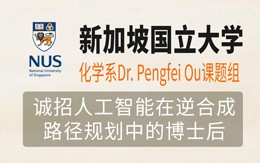Inflammopharmacology ( IF 4.6 ) Pub Date : 2022-07-08 , DOI: 10.1007/s10787-022-01017-8
Sunishtha Kalra 1 , Rohit Malik 1 , Govind Singh 1 , Saurabh Bhatia 2, 3 , Ahmed Al-Harrasi 3 , Syam Mohan 2, 4 , Mohammed Albratty 5 , Ali Albarrati 6 , Murtaza M Tambuwala 7
|
|
Traumatic brain injury (TBI) is an important global health concern that represents a leading cause of death and disability. It occurs due to direct impact or hit on the head caused by factors such as motor vehicles, crushes, and assaults. During the past decade, an abundance of new evidence highlighted the importance of inflammation in the secondary damage response that contributes to neurodegenerative and neurological deficits after TBI. It results in disruption of the blood–brain barrier (BBB) and initiates the release of macrophages, neutrophils, and lymphocytes at the injury site. A growing number of researchers have discovered various signalling pathways associated with the initiation and progression of inflammation. Targeting different signalling pathways (NF-κB, JAK/STAT, MAPKs, PI3K/Akt/mTOR, GSK-3, Nrf2, RhoGTPase, TGF-β1, and NLRP3) helps in the development of novel anti-inflammatory drugs in the management of TBI. Several synthetic and herbal drugs with both anti-inflammatory and neuroprotective potential showed effective results. This review summarizes different signalling pathways, associated pathologies, inflammatory mediators, pharmacological potential, current status, and challenges with anti-inflammatory drugs.
中文翻译:

创伤性脑损伤 (TBI) 的发病机制和治疗:神经炎症和抗炎药的作用
创伤性脑损伤 (TBI) 是一个重要的全球健康问题,是导致死亡和残疾的主要原因。它是由于机动车辆、挤压和袭击等因素造成的直接撞击或撞击头部而发生的。在过去十年中,大量新证据强调了炎症在导致 TBI 后神经退行性和神经功能缺损的继发性损伤反应中的重要性。它导致血脑屏障 (BBB) 的破坏,并在损伤部位启动巨噬细胞、中性粒细胞和淋巴细胞的释放。越来越多的研究人员发现了与炎症的起始和进展相关的各种信号通路。针对不同的信号通路(NF-κB、JAK/STAT、MAPKs、PI3K/Akt/mTOR、GSK-3、Nrf2、RhoGTPase、TGF-β1、和 NLRP3) 有助于开发治疗 TBI 的新型抗炎药。几种具有抗炎和神经保护潜力的合成和草药药物显示出有效的结果。本综述总结了不同的信号通路、相关病理、炎症介质、药理潜力、现状和抗炎药物面临的挑战。































 京公网安备 11010802027423号
京公网安备 11010802027423号